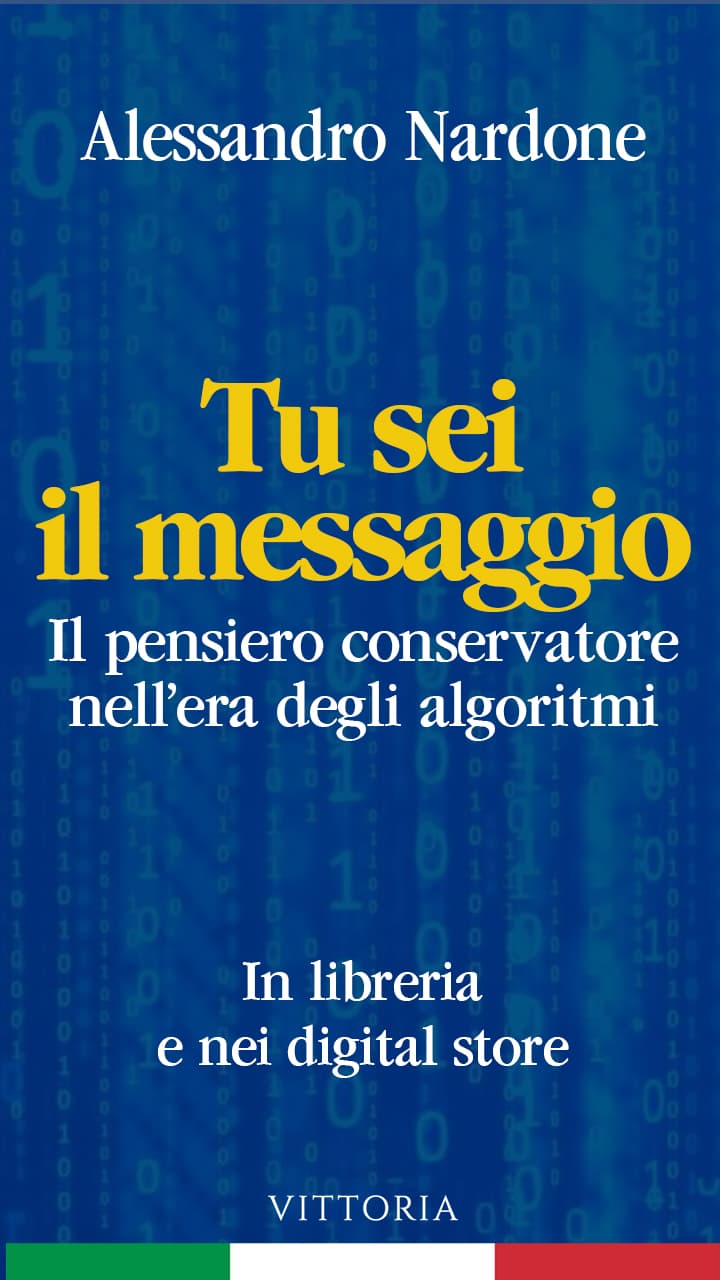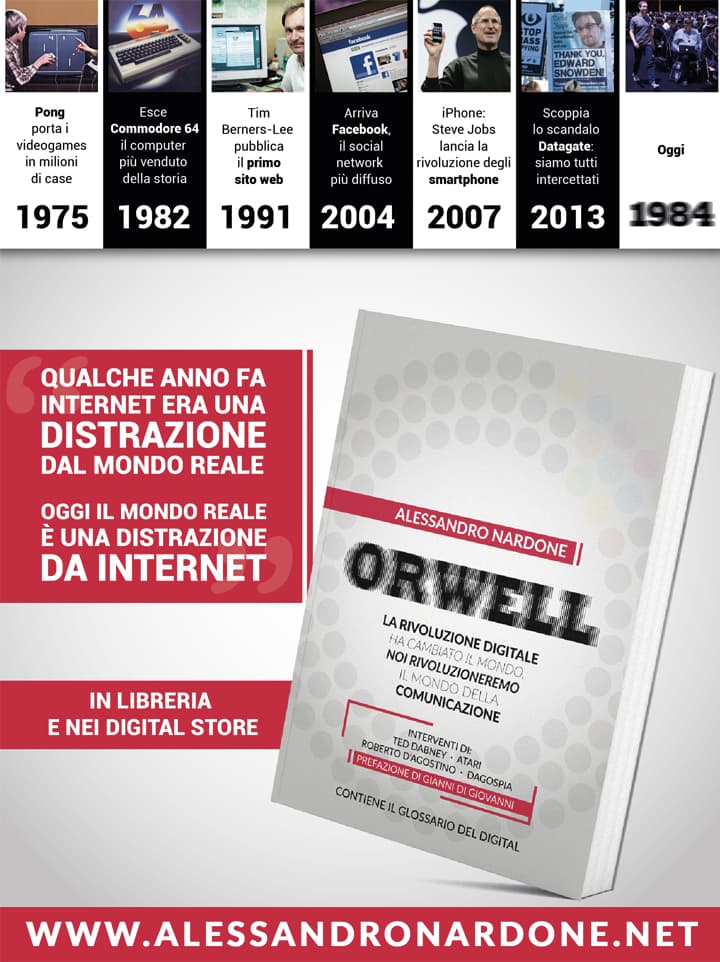Edward Snowden, the young computer scientist who shook the world in 2013 with his revelations about mass surveillance, motivated his decision by stating that “giving up privacy because we have nothing to hide is like giving up the right to speak because we have nothing to say.” A sentence that today, in the midst of the decline of Western democracies, is dramatically prophetic.
The contents that emerged today from the letter sent by Mark Zuckerberg to the chairman of the Justice Committee of the U.S. House of Representatives only confirm what the Twitter Files published by Elon Musk already revealed two years ago: social platforms are not simply neutral spaces of communication, but extremely powerful tools of censorship and manipulation of information. Despite the seriousness of the facts, the mainstream media continue to ignore or deliberately downplay these dynamics, leaving the public in the dark about how deeply Big Tech is complicit in ideological control that goes far beyond what George Orwell predicted.
Meta‘s letter highlights how, during the pandemic, the administration led by Joe Biden and Kamala Harris lobbied to censor content that went against the official narrative. This behavior is not just a repeat of the actions seen with the Twitter Files, in which Twitter, under pressure from government agencies, systematically silenced conservative voices and uncomfortable stories, such as Hunter Biden‘s laptop, substantially affecting the outcome of the 2020 election. Pressures that demonstrate a polarizing drift that far exceeds Orwellian concerns, establishing a new form of bipolarity that will replace the current one (people vs. establishment) born between 2015 and 2016, straddling Brexit and Trump‘s victory.
What we are facing is an even sharper division as it is based no longer on traditional political axes, but on the institutionalization of systematic censorship of opinions that do not conform to the official narrative. This is the concretization of the dictatorship of single thought that we already see in place throughout the West. As early as the early 2000s, the overlap between information and communication, a phenomenon understood to perfection by the left and the globalist establishment, appeared sharp to me.
Not surprisingly, the slogan – “Don’t hate the media, become the media” – that the far-left platform Indymedia coined at the beginning of the new millennium perfectly represents the genesis of the current media dictatorship. Understanding that control of information equals control of communication has allowed the left and the globalist establishment to monopolize public discourse, turning the media into tools of propaganda rather than spaces for free and pluralistic debate.
This overlap has led to an absolute domination of information by a few entities, which dictate which ideas can be discussed and which cannot. The new bipolarized divide not only pits establishment and people against each other, but discriminates against the ideas themselves, creating an environment in which any opinion that does not conform is automatically labeled as disinformation or hate. This phenomenon is fueled by algorithms that favor certain content and corporate policies that arbitrarily decide what deserves visibility.
Preemptive censorship, masquerading as “content moderation” or “public safety protection,” is a direct threat to our freedom of expression. It is a form of control that goes far beyond mere surveillance: it decides what we can say and what we cannot, limiting not only our freedom of expression but also our ability to think freely. This ideological control is supported by a globalist left that, unlike the tyrants of the past, masks its dictatorship behind the veil of democracy and social justice.
Meta’s letter, as well as the Twitter Files, demonstrate how Big Tech is complicit in a system that censors and manipulates information to maintain a single, unchallengeable narrative. This alliance between globalist-led governments and social platforms creates an environment in which free speech becomes a privilege, not a fundamental right. Preemptive censorship not only represses dissent, but also creates a parallel reality in which only approved ideas can thrive, eliminating any possibility of true debate and pluralism.
The new bipolarism based on discrimination of ideas will inevitably lead to an even more sharply divided society. This is a toxic and dangerous model of society, as it undermines the very foundations of democracy, which is based on the free exchange of ideas and respect for differences, while the dictatorship of single-mindedness is turning the West into a huge echo-chamber in which freedom of expression is sacrificed on the altar of ideological homologation.
Edward Snoweden is credited with shedding light on a dark reality: “technological totalitarianism,” a form of control that exceeds in efficiency and pervasiveness any historical precedent. The more than 13,000 top-secret documents he made public showed how the National Security Agency (NSA) had created a widespread surveillance network capable of eavesdropping and monitoring every aspect of our daily lives. It is not just listening to our conversations or reading our emails, but total control, which can even observe the movements of our eyes and lips as we read a book on our smartphone, which can record our every step, our every thought.
A power so vast that it puts the darkest dystopian nightmares to shame. The indifference with which most people have greeted Snowden’s revelations is evidence of the cultural and moral degradation that the mainstream circuit has managed to instill in our society.
Since that fateful 2013, I have told Snowden’s story to thousands of people in dozens of public meetings. And each time I have been confronted with the same stark reality: only a tiny minority knew his story. How is it possible, I wonder, that a man who sacrificed everything to warn us against the danger of total control is so ignored, so forgotten? Probably because accepting his truth would mean acknowledging our weakness, our passive complicity in a system that is slowly depriving us of every right, every dignity.
What we are facing is a battle for the control of our minds and souls. Those who control information control reality itself. And today, that control is in the hands of a few, who decide what we can know and what we should ignore. It is a battle that goes beyond simply defending privacy: it is about defending our ability to think, to dissent, to be truly free.
In this context, the figure of Elon Musk emerges as a kind of bulwark against this oppressive trend. With the publication of the Twitter Files and his struggle to free the platform from the ideological constraints that stifled it, Musk has shown that it is still possible to oppose single-minded thinking, that it is still possible to defend freedom of expression. However, the reaction of the European Union, with its threat to shut down X if Musk does not comply with the rules of the Digital Services Act and the arrest of Telegram CEO Pavel Durov in France, show how high the stakes are. Freedom of speech is under attack not only in the United States but also in Europe, and only determined cultural and political conscious resistance can save it.
This is a real struggle for freedom of thought, of expression, of being ourselves. It is the struggle not to become automatons controlled by a power that wants us silent and obedient. Snowden has shown us the way; it is up to us to decide whether to follow it or resign ourselves to our fate. If we want to save the West, if we want to preserve our freedom, we must have the courage to fight, to speak the truth, to resist control.
The warning of Cincinnatus (the code name used by Snowden, Ed.) is clear: to give up privacy is to give up freedom. But today, we must add another warning: to accept censorship is to accept slavery. We cannot afford to do so. Freedom of expression is not a luxury; it is a necessity. It is the foundation on which any free society is built. And it is our duty to defend it, today more than ever.

























